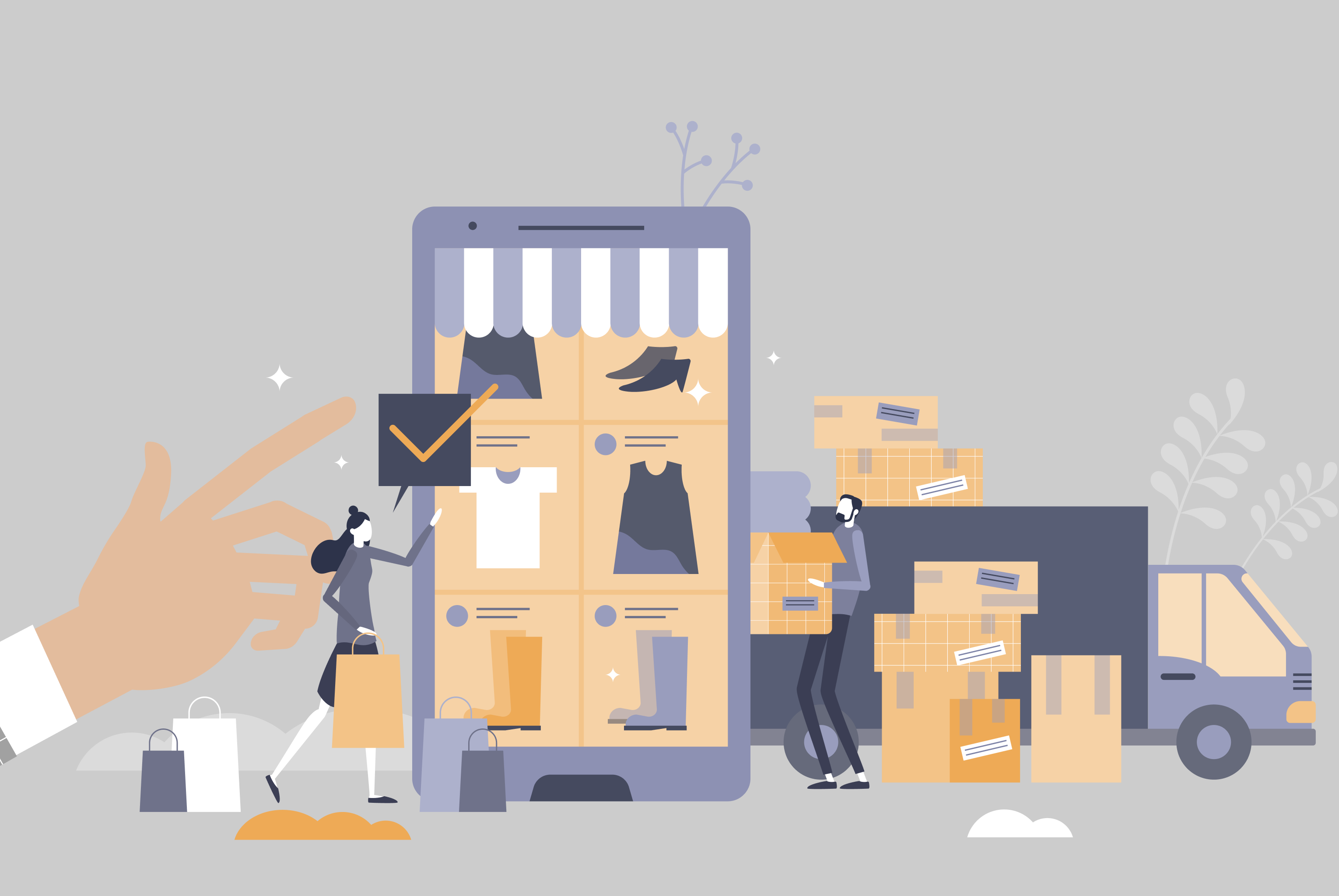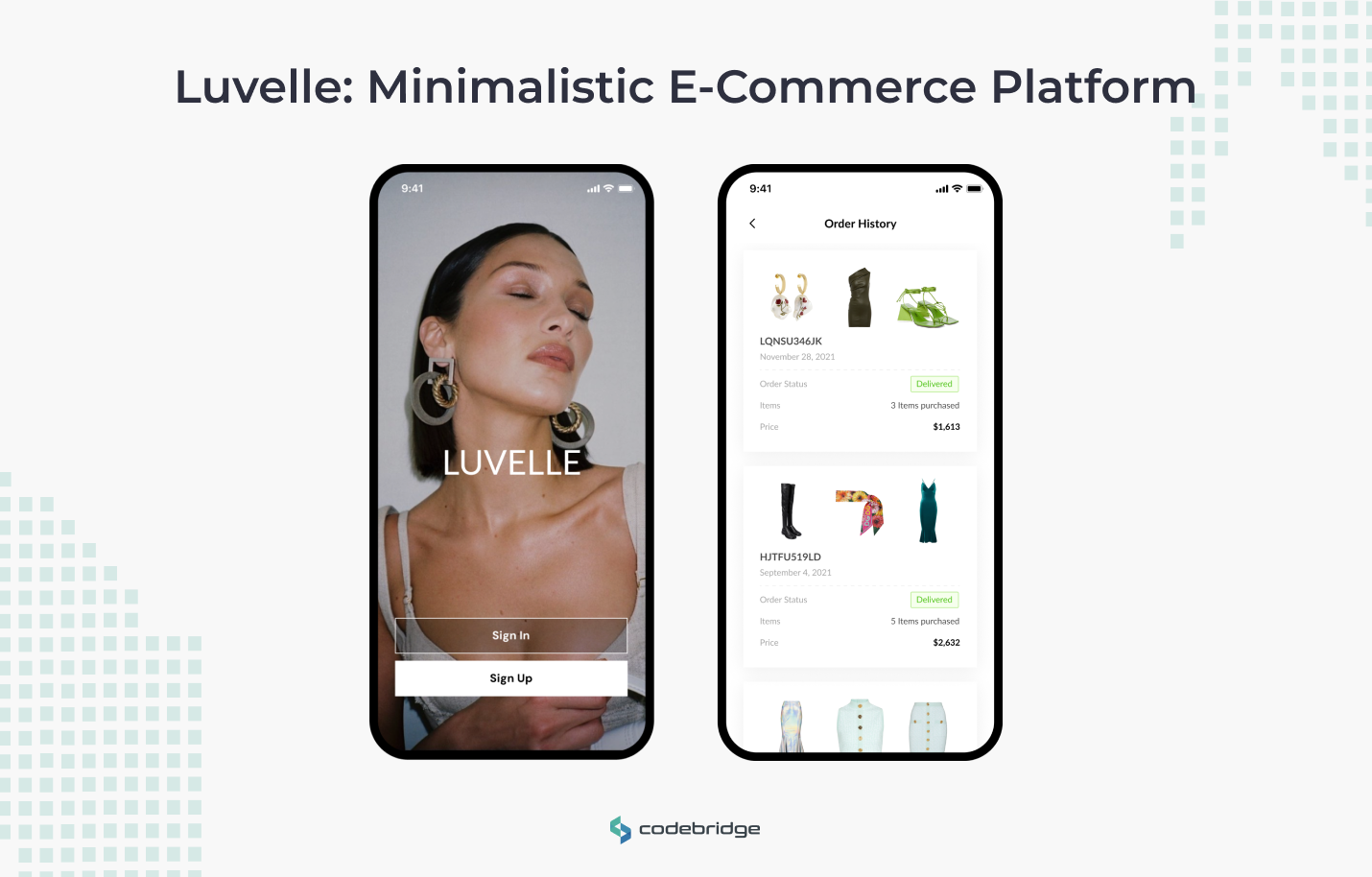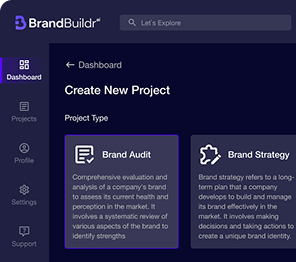Modern software solutions for the retail industry now represent a critical investment rather than an optional upgrade, as evidenced by the global retail management software market expanded from $19.46 billion in 2023 to $22.08 billion in 2024, achieving a compound annual growth rate (CAGR) of 13.5%, originates by The Business Research Company. This rapid adoption underscores how retailers across all sectors recognize the essential role that comprehensive software systems play in maintaining competitiveness and driving sustainable growth.
The convergence of digital transformation with evolving consumer expectations has created an environment where retailers must seamlessly integrate their operations across multiple channels while delivering personalized experiences. Today's successful retail establishments leverage sophisticated software platforms that not only streamline day-to-day operations but also provide deep insights into customer behavior, optimize inventory management, and enhance overall profitability. With the global retail POS software market projected to reach $32.8 billion by 2030, growing at a CAGR of 11.14%, the momentum behind retail technology adoption continues to accelerate, making it imperative for business owners to understand how these solutions can transform their operations.

The Role of Software in Modern Retail Shops
Technology has evolved from a supporting element to the central nervous system of modern retail operations. The retail sector's digital transformation is driven by the escalating demand for automation, the proliferation of e-commerce platforms, and the globalization of retail, necessitating efficient inventory management solutions.
Modern retail software solutions encompass a comprehensive suite of tools designed to manage every aspect of a retail business, including:
%20(1).png)
- Point-of-sale transactions
- Inventory tracking
- Customer relationship management
- Advanced analytics
The integration of software systems in retail shops addresses fundamental operational challenges that have historically plagued the industry. Traditional manual processes are inherently prone to errors, time-consuming, and limit scalability. Modern retail software eliminates these constraints by providing real-time data synchronization, automated workflows, and intelligent decision-making capabilities that enable retailers to respond quickly to market changes and customer demands.
Key Benefits of Implementing Software in Retail Shops
The implementation of comprehensive retail software solutions delivers measurable benefits across multiple dimensions of business operations. Small businesses that implement automation solutions can increase their productivity, and these improvements stem from the software's ability to:
- Eliminate manual data entry
- Reduce human errors
- Provide actionable insights that inform strategic decision-making
Retail software solutions provide end-to-end inventory visibility, enabling real-time tracking of products as they move from supplier to warehouse to customer. This transparency eliminates the guesswork associated with stock management and ensures that retailers maintain optimal inventory levels without overstocking or experiencing stockouts. Additionally, automated processes handle routine tasks such as currency conversion, pricing optimization, and inventory forecasting, freeing up valuable human resources to focus on customer service and strategic initiatives.
The Impact of Software on Retail Operations
The transformative impact of modern retail software extends beyond operational efficiency to encompass strategic business capabilities. According to Grand View Research, the retail automation market was estimated at USD 24,117.1 million in 2023 and is projected to reach USD 44,837.1 million by 2030, growing at a CAGR of 9.3% from 2024 to 2030, demonstrating the widespread adoption of technology-driven solutions that streamline operations while reducing costs and elevating customer experiences. According to a study by the McKinsey Global Institute, 52 percent of all activities in retail can be automated with existing technology, significantly reducing manual workload and operational overhead.
The integration of AI-driven automation allows retailers to optimize retail operations for competitive advantage by implementing intelligent workflows that adapt to changing business conditions.
These capabilities transform traditional reactive retail management into proactive, data-driven operations that anticipate market demands and optimize resource allocation accordingly.

How Retail Software Solutions Improve Sales Performance
Modern retail software solutions fundamentally enhance sales performance through:
- Sophisticated data analytics
- Customer insights
- Automated marketing capabilities
The ability to track sales patterns, analyze customer behavior, and implement targeted promotional strategies enables retailers to maximize revenue opportunities while building stronger customer relationships.
Retail customer analytics has become a game-changer for businesses looking to stay competitive, enabling retailers to make informed decisions, personalize customer experiences, and ultimately drive sales.
Utilizing Customer Data to Boost Sales in Retail
Customer data utilization represents one of the most powerful capabilities of modern retail software, enabling personalized shopping experiences that drive increased sales and customer loyalty. Retailers now leverage sophisticated data collection tools to create unified customer profiles based on:
%20(1).png)
- Purchase history
- Browsing behavior
- Social interactions across multiple channels
Machine learning algorithms drive recommendation systems that predict customer preferences with remarkable accuracy, delivering personalized shopping experiences tailored to individual needs.
The implementation of customer segmentation strategies allows retailers to group customers based on shared characteristics, behaviors, or preferences, enabling the creation of targeted marketing campaigns and personalized product recommendations. Advanced retail software platforms can automatically trigger personalized promotions and discounts based on individual customer price sensitivities and preferences, maximizing the likelihood of conversion while optimizing profit margins.
Sales Reporting and Performance Metrics
Comprehensive sales reporting and performance analytics provide retailers with the insights necessary to make data-driven decisions that optimize revenue generation.
Modern retail software solutions offer sophisticated reporting capabilities that track key performance indicators (KPIs) including:
- Gross margin return on investment (GMROI)
- Inventory turnover
- Sold products per square foot
- Customer lifetime value
These metrics enable retailers to identify high-performing products, optimize pricing strategies, and allocate resources more effectively.
Real-time analytics capabilities ensure that retailers can respond quickly to changing market conditions and sales trends. The software provides detailed insights into sales performance across different channels, time periods, and customer segments, enabling managers to identify opportunities for improvement and adjust strategies accordingly. Advanced reporting features include:
- Automated alerts for inventory levels
- Sales threshold notifications
- Performance dashboards that provide at-a-glance views of critical business metrics
Streamlining Retail Shop Operations with Modern Software
The automation of retail operations through modern software solutions represents a paradigm shift from manual, labor-intensive processes to intelligent, automated workflows that enhance efficiency and reduce operational costs. Contemporary retail software platforms integrate multiple operational functions into unified systems that manage:
- Inventory
- Employee scheduling
- Customer service
- Financial processes seamlessly
This integration eliminates the silos that traditionally existed between different departments and creates a cohesive operational environment where information flows freely and processes are optimized for maximum efficiency.
The scope of operational automation extends beyond basic transaction processing to encompass sophisticated workflow management that adapts to business requirements and market conditions. Retail operations software development integrates AI-driven automation to streamline processes, reducing manual workload and minimizing human errors. By implementing automated workflows, businesses can enhance productivity and improve response times, with AI-driven systems automatically generating purchase orders when stock reaches predefined thresholds, ensuring seamless inventory flow.
Automating Inventory Management for Better Stock Control
Inventory management automation represents one of the most critical applications of retail software, providing:
- Real-time tracking
- Automated reordering
- Intelligent demand forecasting capabilities
Modern inventory management systems utilize Internet of Things (IoT) sensors, Radio-Frequency Identification (RFID) tags, and cloud-based platforms to provide retailers with precise control over stock levels across multiple locations. These solutions enable seamless synchronization across warehouses, stores, and fulfillment centers, reducing stockouts, overstock scenarios, and inventory mismatches.
Advanced inventory management features include:
- Barcode scanning
- Automated stock adjustments
- Integration with suppliers for seamless replenishment
The software tracks product movement in real-time, provides alerts when inventory levels reach predetermined thresholds, and automatically generates purchase orders based on optimal reorder levels. This automation ensures that popular items remain available to customers while minimizing the capital tied up in excess inventory, with integration of predictive analytics ensuring inventory levels align with demand patterns, enhancing operational efficiency and reducing costs.
Efficient Employee Scheduling and Time Management
Employee scheduling and workforce management represent significant operational challenges for retail businesses, particularly those with multiple locations and varying customer traffic patterns. Modern retail software solutions address these challenges through intelligent scheduling systems that optimize staff allocation based on:
- Historical sales data
- Seasonal trends
- Predicted customer traffic
These systems automatically create schedules that ensure adequate coverage during peak periods while minimizing labor costs during slower times.
Advanced scheduling features include:
- Automated shift assignments
- Time tracking integration
- Compliance monitoring to ensure adherence to labor regulations
The software can analyze foot traffic and sales trends to dynamically adjust staffing needs, ensuring optimal customer service levels while controlling labor costs. Mobile accessibility allows employees to view schedules, request time off, and communicate with management through integrated platforms, reducing administrative overhead and improving employee satisfaction. This intelligent approach to workforce management reduces employee no-shows and burnout while ensuring that retailers maintain appropriate staffing levels to support customer service objectives.

The Features to Look for in Software for Retail Shops
Selecting appropriate retail software requires careful evaluation of features that align with specific business requirements and operational objectives. Essential features encompass:
- Comprehensive point-of-sale systems
- Robust inventory tracking capabilities
- Integrated customer relationship management
- Advanced reporting and analytics
- Multi-channel retailing support
These core functionalities must work seamlessly together to provide a unified platform that supports all aspects of retail operations while providing the flexibility to adapt to changing business needs.
The most effective retail software solutions offer scalable architectures that grow with the business, allowing modular expansions and feature enhancements without requiring complete system replacements. Modern platforms prioritize user-friendly interfaces that maximize employee adoption and customer interaction, recognizing that poor usability can lead to task abandonment and reduced productivity. Integration capabilities are equally critical, as retail businesses typically use multiple systems including POS, ERP, supply chain tools, and CRM, requiring seamless connectivity that eliminates compatibility issues and ensures smooth data flow.
Key Features of an Effective POS System
Point-of-sale systems serve as the foundation of retail operations, facilitating seamless transaction processing while providing comprehensive business management capabilities. An effective POS system must support:
- Efficient transaction processing through various payment methods, including cash, credit/debit cards, mobile payments, and digital wallets
- Real-time inventory management functionality that automatically updates stock levels as transactions occur
Advanced POS features include:
- Comprehensive product information management with detailed descriptions, images, pricing information, and stock levels
- Robust reporting capabilities that track sales performance, customer behavior, and inventory movement
Integration with customer relationship management systems enables personalized service delivery and targeted marketing campaigns, while multi-channel support ensures consistent experiences across online and offline touchpoints.
Integration with Online Sales Channels for Omnichannel Retailing
Omnichannel integration represents a critical capability for modern retail software, enabling seamless customer experiences across multiple touchpoints including:
- Brick-and-mortar stores
- E-commerce platforms
- Mobile applications
- Social media channels
The software should provide unified inventory management that tracks stock levels in real-time across all channels, preventing overselling and ensuring accurate product availability information. This integration enables efficient order fulfillment and reduces the risk of stockouts while optimizing inventory distribution across different sales channels.
Effective omnichannel retail software unifies customer data from various sources into a single platform, providing retailers with comprehensive customer profiles that inform personalized marketing and service delivery. The system should support:
- Click-and-collect services
- Ship-from-store capabilities
- Seamless returns processing across channels
This flexibility enhances the customer shopping experience. Real-time data synchronization ensures that customer interactions, inventory levels, and transaction data remain consistent across all touchpoints, enabling retailers to provide cohesive service regardless of how customers choose to engage with the brand.
How Retail Software Helps in Customer Experience Enhancement
Customer experience enhancement through retail software represents a fundamental shift from generic, one-size-fits-all service delivery to personalized, data-driven interactions that meet individual customer needs and preferences.
Modern retail software platforms leverage comprehensive customer data analysis to create tailored shopping experiences that increase:
- Satisfaction
- Loyalty
- Lifetime value
The software's ability to track customer behavior across multiple touchpoints enables retailers to understand preferences, anticipate needs, and deliver relevant product recommendations and promotional offers.
The integration of artificial intelligence and machine learning capabilities allows retail software to continuously learn from customer interactions and refine personalization strategies over time. These systems can analyze:
- Purchase history
- Browsing patterns
- Engagement data
This analysis predicts future buying behavior and proactively presents relevant products and services. This level of personalization has become increasingly important, with 71% of consumers preferring brands that provide AI-powered personalized shopping experiences, demonstrating the critical role that intelligent software plays in meeting modern customer expectations.
Personalized Recommendations and Loyalty Programs
Personalized recommendation engines powered by advanced retail software significantly enhance customer engagement and drive increased sales through:
- Targeted product suggestions
- Customized promotional offers
These systems analyze individual customer data, including:
- Purchase history
- Browsing behavior
- Demographic information
Machine learning algorithms continuously refine these recommendations based on customer responses and interactions, improving accuracy and effectiveness over time.
Loyalty program integration enables retailers to create comprehensive customer retention strategies that reward frequent shoppers while encouraging repeat purchases. Modern retail software platforms support sophisticated loyalty program features, including:
- Points accumulation
- Tier-based rewards
- Referral programs
- Personalized incentives
These features can improve customer retention rates by up to 30%, leveraging customer data to deliver targeted rewards that match individual preferences and shopping behaviors.
Faster Checkout and Enhanced Customer Service with POS Systems
Modern POS systems significantly enhance customer experience through streamlined checkout processes and improved service delivery capabilities. Advanced POS platforms support:
- Multiple payment methods, including contactless payments, mobile wallets, and buy-now-pay-later options
These options provide customers with convenient and secure transaction methods that reduce checkout times and eliminate friction. Self-checkout capabilities and mobile POS solutions enable retailers to process transactions anywhere in the store, reducing queue lengths and improving customer satisfaction during peak periods.
The integration of customer data within POS systems enables personalized service delivery at the point of sale, allowing associates to access:
- Purchase history
- Preferences
- Loyalty program status
This access enables tailored recommendations and targeted offers. Real-time inventory visibility ensures that customers receive accurate information about:
- Product availability
- Alternative options
- Delivery timeframes
This transparency prevents disappointment and enables informed purchasing decisions. Advanced POS systems also support seamless returns processing and customer service functions, enabling staff to resolve issues quickly and maintain positive customer relationships throughout the shopping experience.
How Luvelle Transformed Luxury E-Commerce with Modern Retail Software
Luvelle, a premium e-commerce platform targeting affluent and style-conscious shoppers, serves as a prime example of how modern retail software can elevate the shopping experience and streamline operations. The challenge was to design an elegant and functional mobile app that reflects the brand's luxury positioning while ensuring intuitive usability.

The project focused on:
- Minimalistic UX/UI design aligned with high-end aesthetics
- Streamlined product discovery through advanced filtering and navigation
- Personalized user profiles storing orders, preferences, and shipping info
- Mobile-first experience with a frictionless checkout flow
Through extensive user research and usability testing, the Luvelle app achieved a clean, fast, and conversion-oriented interface. Users praised the app for its intuitive design and ease of navigation, which directly contributed to stronger customer engagement and increased purchase completion rates.
This case clearly demonstrates how thoughtfully designed retail software can drive both sales performance and operational efficiency, especially in niche markets like luxury fashion. The success of Luvelle's implementation illustrates the importance of aligning software capabilities with brand positioning and customer expectations, showing how modern retail technology can enhance rather than compromise the premium shopping experience that luxury consumers demand.
The Future of Retail Software: What's Next for Retail Shops?
The future of retail software is characterized by the integration of artificial intelligence, Internet of Things (IoT) technologies, and cloud-based solutions that promise to further revolutionize how retail businesses operate and serve customers.
- AI-driven retail revenue is growing at a 29.9% CAGR
- Retailers who fail to integrate AI risk being left behind in an increasingly competitive marketplace
The evolution toward more intelligent, automated, and interconnected retail systems will enable unprecedented levels of operational efficiency, customer personalization, and predictive capability.
Emerging technologies are reshaping retail operations through:
- Generative AI applications
- Multimodal AI interfaces
- Intelligent automation
- Predictive analytics
These technologies transform customer experiences, in-store operations, and backend efficiency. The retail technology landscape is evolving rapidly, with innovations in autonomous systems, robotics integration, and AI-enhanced customer service setting new standards for operational excellence and customer engagement. These advancements represent not just technological upgrades but fundamental shifts in how retailers conceptualize and deliver value to customers.
Integrating AI and IoT in Retail Software Solutions
The integration of artificial intelligence and Internet of Things technologies represents the next frontier in retail software evolution, enabling unprecedented levels of automation, intelligence, and connectivity throughout retail operations.
AI applications in retail are expanding beyond traditional analytics to encompass:
- Hyper-personalized recommendations
- Conversational shopping assistants
- AI-generated content and visuals
- Intelligent fraud detection systems
These capabilities enable retailers to deliver seamless, personalized experiences that meet evolving consumer expectations while optimizing operational efficiency.
IoT integration in retail software enables smart inventory management through:
- Sensor networks
- RFID tracking
- Connected devices providing real-time visibility into stock levels, product location, and supply chain status
These systems optimize resource usage, reduce costs, and improve conditions for employees and customers while generating valuable data on store operations and visitor behavior. Advanced IoT applications include:
- Smart shelves that automatically track inventory levels
- Environmental sensors that monitor storage conditions for perishable goods
- Customer tracking systems that analyze shopping patterns and optimize store layouts for maximum efficiency
The Shift Towards Cloud-Based Retail Management Systems
Cloud-based retail management systems represent a fundamental architectural shift that provides retailers with:
- Enhanced scalability
- Flexibility
- Accessibility compared to traditional on-premise solutions
Cloud technologies have revolutionized inventory management by introducing:
- Real-time tracking
- Advanced automation
- Streamlined workflows
These capabilities enable seamless synchronization across warehouses, stores, and fulfillment centers while reducing operational complexity and infrastructure costs.
The advantages of cloud-based retail systems extend beyond cost savings to include:
- Enhanced collaboration
- Automatic updates
- Improved disaster recovery capabilities
Cloud platforms enable retailers to access their systems from any location, supporting remote management and distributed operations while ensuring data security and compliance with industry standards. The scalability of cloud solutions allows retailers to adjust their technology resources based on seasonal demands and business growth without significant capital investments. Integration with other cloud-based services creates comprehensive ecosystems that support all aspects of retail operations from customer service to supply chain management.
Final Thoughts
Modern software for retail shops has evolved from a luxury to an absolute necessity for businesses seeking to remain competitive and profitable in today's dynamic marketplace. The comprehensive benefits of implementing advanced retail software solutions extend far beyond basic operational improvements to encompass strategic advantages that drive sustainable growth and customer loyalty. From streamlined inventory management and automated workflows to personalized customer experiences and data-driven decision-making, these technological investments deliver measurable returns on investment while positioning retailers for future success.
The rapid evolution of retail technology, particularly the integration of artificial intelligence, cloud computing, and IoT systems, continues to expand the possibilities for operational excellence and customer engagement. Retailers who embrace these innovations gain competitive advantages through enhanced efficiency, improved customer satisfaction, and the ability to adapt quickly to changing market conditions. As the retail landscape becomes increasingly complex and customer expectations continue to rise, the strategic implementation of comprehensive software solutions becomes critical for long-term viability and growth.
The evidence is clear: retailers who invest in modern software solutions achieve significant improvements in sales performance, operational efficiency, and customer satisfaction. The key to success lies in selecting solutions that align with specific business objectives, provide scalability for future growth, and integrate seamlessly with existing operations to create cohesive, intelligent retail ecosystems that serve both business and customer needs effectively.
For retailers considering software implementation, the time for action is now. The retail industry continues to evolve rapidly, and those who act decisively to modernize their operations will be best positioned to capitalize on emerging opportunities while delivering the exceptional experiences that today's customers demand. The investment in comprehensive retail software solutions represents not just an operational upgrade, but a strategic transformation that enables sustainable competitive advantage in an increasingly digital marketplace.
Partner with Codebridge to drive that transformation. Our team specializes in developing tailored retail software solutions that streamline operations, enhance customer engagement, and future-proof your business. Whether you're launching a new platform or optimizing your current systems, Codebridge delivers the expertise and technology to help you lead in a competitive landscape.
FAQ
How can retail software development help businesses boost sales?
Retail software development boosts sales by improving customer experiences through personalized recommendations, faster checkout processes, and optimized product discovery. Advanced analytics also help retailers understand buying behavior, enabling smarter promotions and higher conversion rates.
Which retail operations benefit most from custom software solutions?
Inventory management, POS systems, supply chain tracking, staff scheduling, and customer loyalty programs benefit significantly from custom retail software. Automating these operations reduces errors, increases efficiency, and ensures smoother day-to-day store performance.
How does data analytics in retail software improve decision-making?
Retail software with built-in data analytics provides insights into sales performance, demand patterns, inventory levels, and customer preferences. These insights help retailers make informed decisions on pricing, promotions, stocking, and store layout optimization—leading to better profitability.
Why is omnichannel integration important for modern retail businesses?
Omnichannel integration connects online stores, physical shops, and mobile apps into a seamless experience. It ensures consistent pricing, inventory visibility, and customer data across all channels. This improves customer satisfaction and increases repeat purchases.
How can AI-powered retail software enhance customer engagement?
AI-powered retail software enhances engagement by delivering personalized product suggestions, automating customer support, and analyzing shopper behavior. AI-driven systems also predict trends and optimize marketing campaigns, helping retailers serve customers more effectively and boost loyalty.
What technologies are essential for successful retail software development?
Key technologies include cloud infrastructure, mobile app frameworks, POS integrations, inventory automation tools, AI engines, and secure payment systems. These technologies enable scalable, fast, and reliable retail solutions that improve both sales and operational efficiency.
























